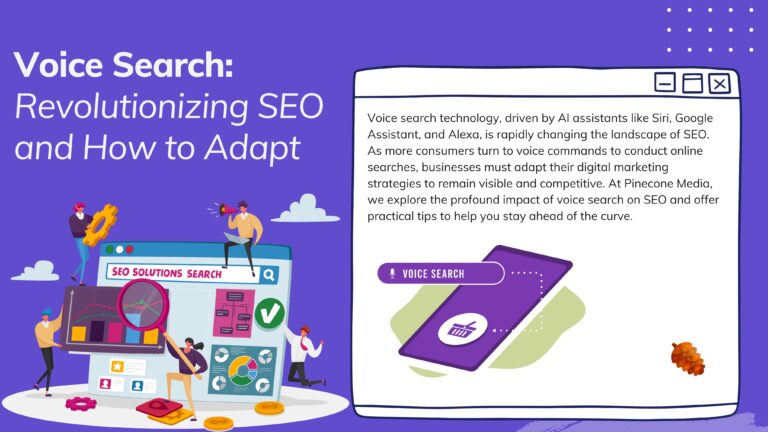Customer Relationship Management: The Transformation in the Digital Age
In the ever-evolving digital world, Customer Relationship Management (CRM) has undergone a remarkable transformation. Once seen as a tool for managing contacts and tracking sales, CRM systems have now become powerful, data-driven solutions that enable businesses to build stronger, more personalized relationships with their customers. At Pinecone Media, we explore how CRM has adapted to the digital age and what this means for businesses looking to enhance customer loyalty and drive growth.

The Evolution of CRM
Traditionally, CRM systems were primarily used to store customer information and manage interactions between sales teams and clients. While effective for its time, these older systems were often limited in functionality and focused solely on transactional relationships. The digital revolution has changed the way businesses and customers interact, necessitating the evolution of CRM into something much more robust and dynamic.
With advancements in technology, CRM systems now integrate with multiple digital platforms, allowing businesses to collect vast amounts of customer data and turn it into actionable insights. From email marketing to social media, modern CRM platforms offer tools for personalization, automation, and data analytics that help businesses understand and serve their customers more effectively.
Key Benefits of Digital CRM
The digital transformation of CRM brings a multitude of benefits to businesses of all sizes:
- Enhanced Customer Insights Modern CRM systems gather and analyze data from various touchpoints, including website interactions, social media activity, email engagements, and purchase history. This data provides a comprehensive view of each customer, enabling businesses to understand their preferences, behaviors, and pain points.
- Personalization at Scale In the digital age, customers expect personalized experiences. With CRM platforms, businesses can segment their audience based on specific criteria and deliver tailored marketing messages that resonate with individual customers. This level of personalization builds trust and loyalty, ultimately driving higher conversion rates.
- Automation of Routine Tasks Automation is a key feature of modern CRM systems. Businesses can automate repetitive tasks such as sending follow-up emails, updating customer records, or generating reports. By automating these tasks, teams can focus on more strategic activities, leading to improved efficiency and productivity.
- Integration with Other Digital Tools Today’s CRM platforms integrate seamlessly with other marketing and sales tools such as email marketing software, social media management platforms, and e-commerce systems. This integration creates a unified system where data flows effortlessly between departments, enabling a holistic view of the customer journey.
- Improved Customer Support CRM systems have revolutionized customer service by enabling businesses to track and manage customer inquiries, complaints, and feedback more effectively. By providing support teams with detailed customer histories and preferences, CRM tools empower them to deliver fast and personalized service.
Key Trends Shaping CRM in the Digital Age
As CRM continues to evolve, several trends are shaping the future of customer relationship management:
- AI and Machine Learning Artificial intelligence (AI) and machine learning are enhancing CRM systems by enabling predictive analytics. AI-driven CRMs can analyze past interactions to predict future behaviors, allowing businesses to anticipate customer needs and tailor their approaches accordingly.
- Mobile CRM With the rise of remote work and on-the-go business, mobile CRM solutions are becoming increasingly important. Mobile CRM apps allow sales and customer service teams to access customer data and manage relationships from anywhere, improving flexibility and responsiveness.
- Social CRM Social media has become an integral part of the customer journey. Social CRM tools allow businesses to monitor customer interactions on social platforms, engage with customers directly, and incorporate social data into their overall CRM strategy.
- Omnichannel CRM In today’s digital landscape, customers interact with businesses across multiple channels—websites, social media, email, and phone. Omnichannel CRM solutions provide a unified view of customer interactions across all these channels, enabling businesses to deliver consistent and personalized experiences.
Customer Relationship Management (CRM) has undergone a profound transformation in the digital age. No longer limited to basic contact management, modern CRM systems offer businesses the tools to gain deep customer insights, automate processes, and deliver personalized experiences at scale. As CRM continues to evolve with technologies like AI, mobile solutions, and social integration, businesses that embrace these advancements will be well-positioned to build lasting customer relationships and drive sustainable growth. At Pinecone Media, we help businesses leverage the latest CRM tools to enhance their marketing strategies and improve customer engagement.
Customer Relationship Management, CRM Tools, Digital CRM, Business Growth, CRM Transformation




